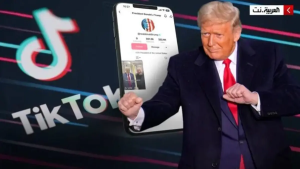The U.S. Department of Justice (DOJ) has formally asked the Supreme Court to reject a request from President-elect Donald Trump to delay the enforcement of a law mandating either the divestment or ban of the popular social media app TikTok by January 19, 2025. This comes as the court prepares to hear arguments on January 10.
The law, passed in April, requires ByteDance, TikTok’s Chinese parent company, to sell its U.S. assets or face a nationwide ban. The move is part of a broader effort to address concerns about national security and data privacy related to Chinese-owned technology.
The DOJ, in its filing, argued that TikTok poses a significant threat due to its collection of sensitive data from 170 million American users, which could potentially be leveraged for espionage or malign influence operations by the Chinese government.

“No one can seriously dispute that China’s control of TikTok through ByteDance represents a grave threat to national security,” the DOJ stated.
Trump’s Request for Delay
In a surprising turn, Trump, who previously sought to ban TikTok during his presidency in 2020, now argues for more time to resolve the issue politically. His lawyer, D. John Sauer, requested the Supreme Court to stay the January 19 deadline, allowing the incoming administration the chance to pursue a political solution.
Read More: TikTok Turns to US Supreme Court in Last-Ditch Bid to Avert Ban
TikTok has responded by urging the court to block the law on First Amendment grounds, asserting that it is being unfairly targeted. The company noted that Congress has not sought similar bans on other Chinese-owned apps like Shein or Temu, suggesting that the law’s focus on TikTok is driven more by its content than by genuine security concerns.

Potential Impact of the Ban
If the Supreme Court does not intervene by January 19, new downloads of TikTok on Apple and Google app stores will be prohibited, though existing users will initially retain access. Over time, services are expected to degrade as companies will be restricted from providing technical support, eventually rendering the app non-functional.
President Biden could extend the deadline by 90 days if ByteDance demonstrates significant progress toward divestiture.
Trump’s current stance contrasts sharply with his 2020 efforts to block TikTok in the U.S., citing similar national security concerns. The reversal highlights the evolving political considerations surrounding the app and its global influence.
As the January 19 deadline looms, the Supreme Court’s ruling will be pivotal in determining TikTok’s future in the U.S. The case underscores the broader geopolitical tension between the U.S. and China, raising critical questions about national security, freedom of speech, and the regulation of technology.









